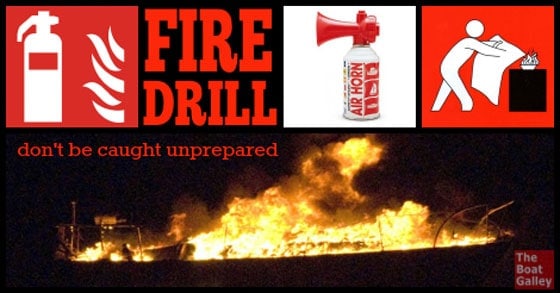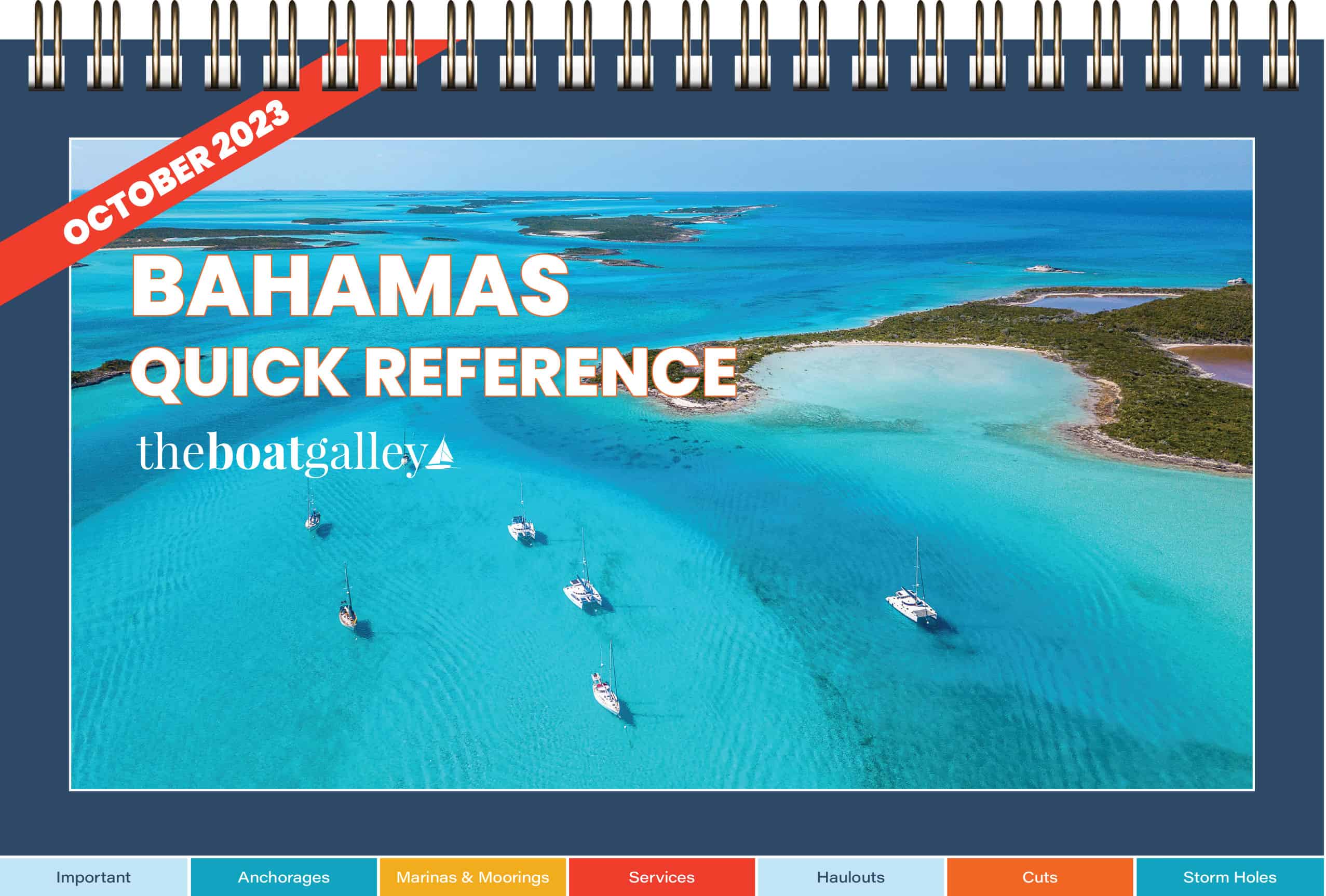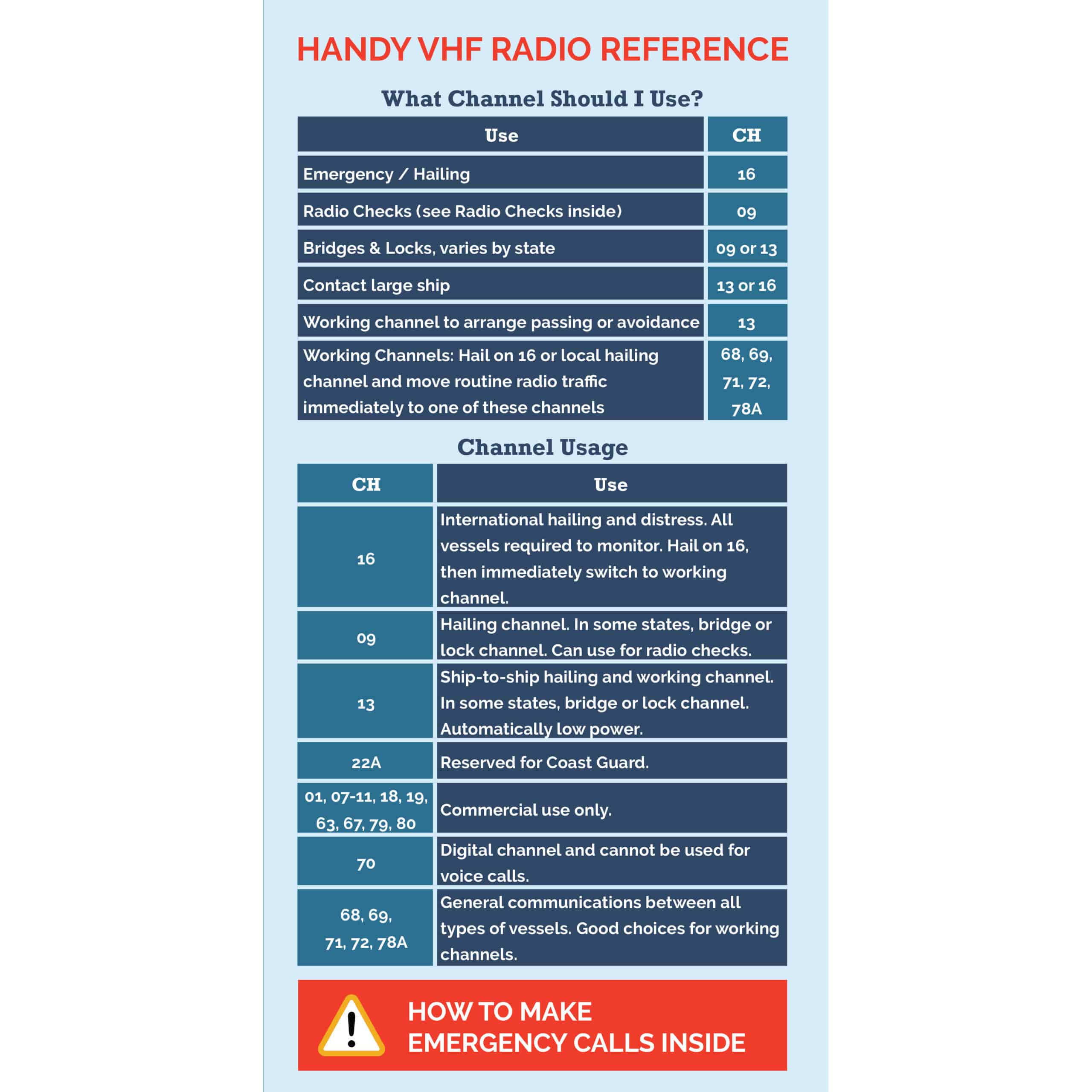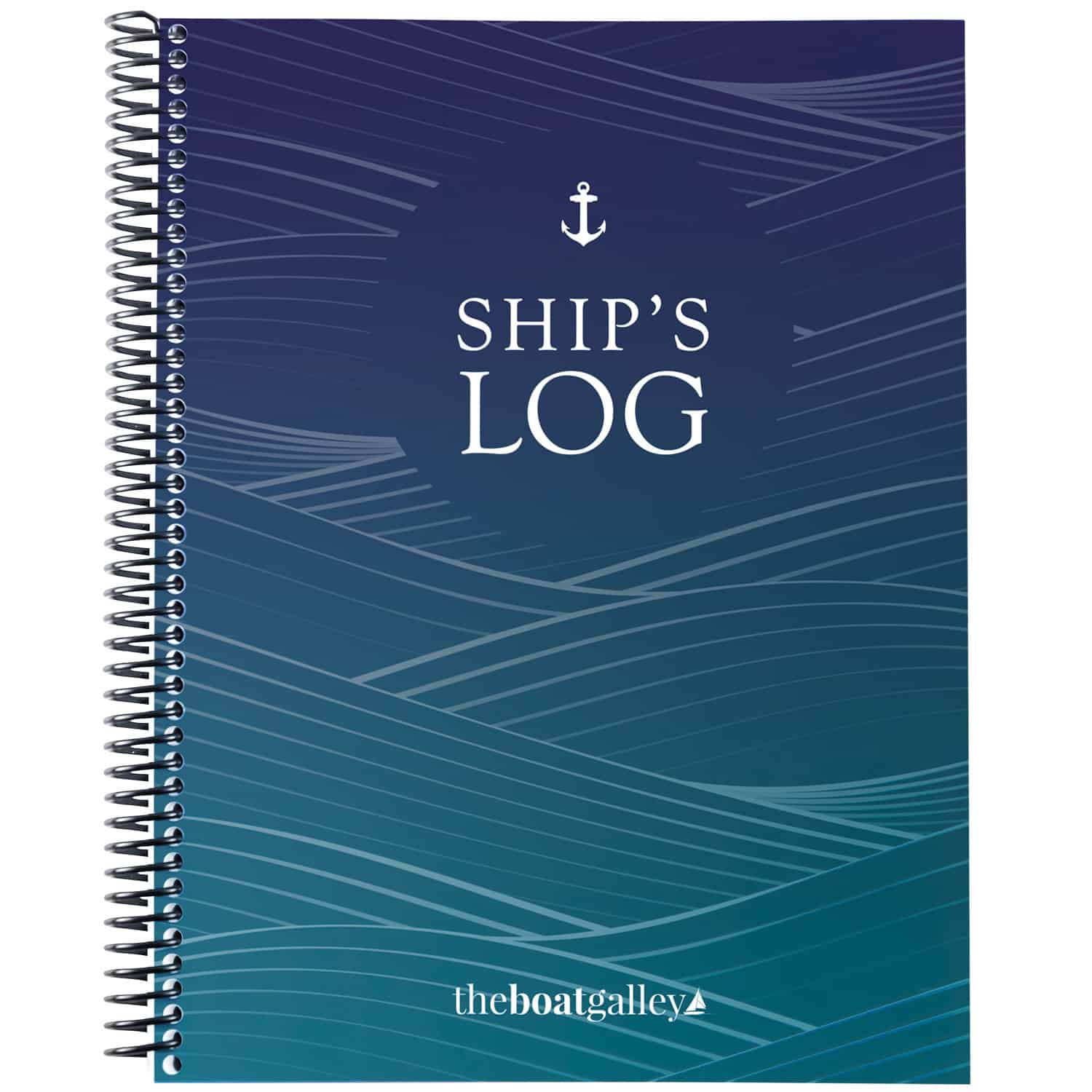A fire aboard is probably one of the scariest things that boaters face. You hope it never happens to you, hope you’re prepared, hope you know what to do. But the sad reality is that we know two people who have had their boats burn to the waterline.
Today’s post comes courtesy of Al Felker, who wrote me:
My tip is to practice a fire on your boat. We do this at regular intervals (3 months). I just call out, “There’s a fire on the stove in the galley.” Then wait and see what happens. After the fire is “out”, we discuss what was done right or wrong. A post mortem so to speak. We found out that we didn’t know how to pull the pin or how to pull the trigger on the fire extinguisher! So we did some additional training and will do better next time.
What a great idea! We practice lots of other situations on the boat, why not a fire drill? And I’m sure that one would point out lots of areas where we need to think things through just a little better, or perhaps move a fire extinguisher to make it more accessible.
I’ve written three other articles related to fires that you may want to check out:
- Fire Aboard! Have you ever thought of what you’d do if you had a fire on your boat? What’s the first thing you’d do? A basic guide to fighting a fire on board.
- Using a Fire Blanket — few boats have them, but they’re inexpensive and more effective than fire extinguishers in putting out many fires, especially those in the galley.
- Using a Fire Extinguisher — as Al wrote in his note, do you really know how to operate your fire extinguisher? Or would you be standing there, reading the directions as the flames grew larger?
So what are you waiting for? Go yell “practice fire in the galley” (or engine room, v-berth, lazarette . . . ) and see how everyone handles it. Learn from your mistakes and do another practice in a couple days. Then in a couple of weeks, practice a different type of fire.
I hope you never have to fight a fire for real. But I also hope that if you do, you’re prepared . . . and know when to abandon ship if need be.

Quickly find anchorages, services, bridges, and more with our topic-focused, easy-to-use waterproof guides. Covering the ICW, Bahamas, Florida, and Chesapeake.
Explore All Guides

Carolyn Shearlock has lived aboard full-time for 17 years, splitting her time between a Tayana 37 monohull and a Gemini 105 catamaran. She’s cruised over 14,000 miles, from Pacific Mexico and Central America to Florida and the Bahamas, gaining firsthand experience with the joys and challenges of life on the water.
Through The Boat Galley, Carolyn has helped thousands of people explore, prepare for, and enjoy life afloat. She shares her expertise as an instructor at Cruisers University, in leading boating publications, and through her bestselling book, The Boat Galley Cookbook. She is passionate about helping others embark on their liveaboard journey—making life on the water simpler, safer, and more enjoyable.











Chris&Janet says
One thing to consider is almost everything on a boat (except cooking grease) produces seriously toxic vapors/fumes (including cyanide) and very sooty particulates. Without goggles and a breathing mask (or even a wet towel across mouth and nose), one has about 30 seconds (breath hold time when agitated and active) to quash the fire.
Beyond that it may be better to abandon the boat to the fire for long term health reasons.
This is perhaps the best reason for having the ability to remotely release fire fighting agents in the engine compartment, and for having an extinguisher nearby when grilling.
Carolyn Shearlock says
Great point!
Al Felker says
We had a laptop catch fire on our boat while charging. Scariest moment ever. We have practiced ever since. Only buy brand name Lithium batteries for your laptop. We put it out with a fire extinguisher.
Chris&Janet says
Another reason to back up data!
John K. says
Don’t forget a soke detector, either! My local community sailing center had a safety night where we heard from the local fire department, marine patrol, Coast Guard, and US Power Squadron. The fire department representative said, don’t forget the smoke detector and CO detector! I never thought of this before so prior to a single-handed cruise to northern Lake Michigan last summer I installed a smoke detector … which turned out to be a life saver. The exhaust header on my auxilary engine broke while motor-sailing and filled the cabin with thick diesel exhaust, which could have led to an engine fire. I was in the cockpit and wouldn’t have known about the problem soon enough without the loud signal from the smoke detector!
Jenn Osborne says
I was actually in a boat fire while on the hook. With 3 dogs aboard also. We all made it out alive barely. But all thanks to GOD and my friend patrick who lived a few boats away who met me 1/2 way to land mind u dogs where in dinghy while i was in water pulling the dinghy by the line. Yay we’re all still alive. Never used fire extinguisher b-4 not as easy to figure out while under pressure. Lost my boat. She sat on bottom for a bit til sarasota pd pulled her up and hauled her to 10 th st to be crushed along with all memories of kids when they were young. My dreams and memories and my home were all crushed even though i did everything rite to put out fire. It just so happened to be a very windy, choppy day that day. 🙁